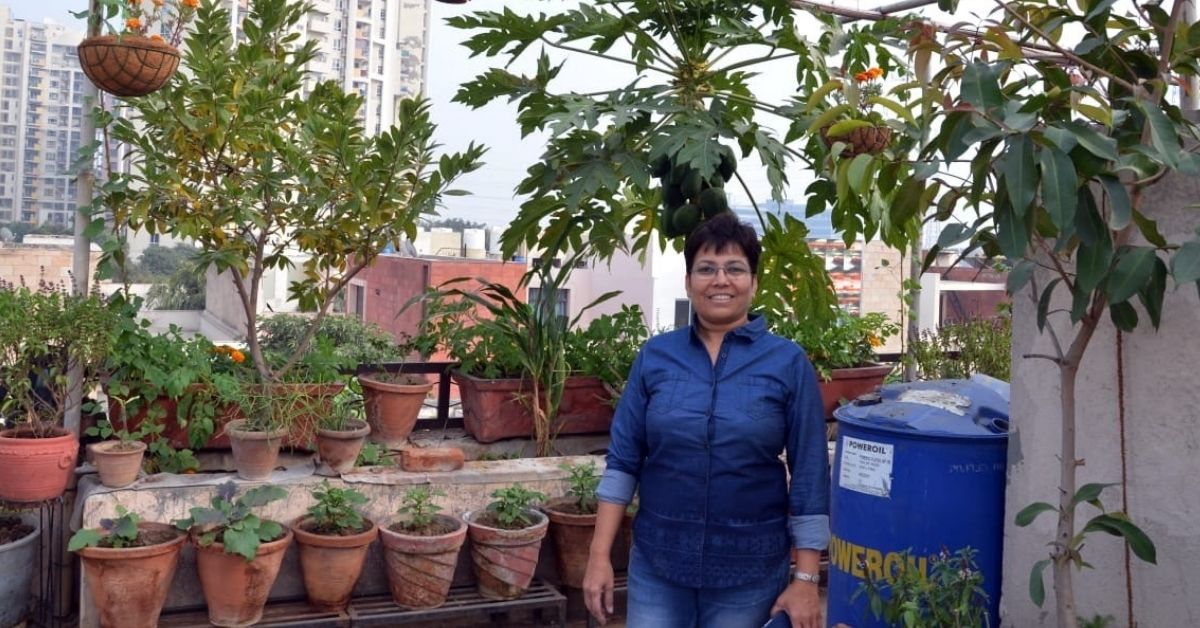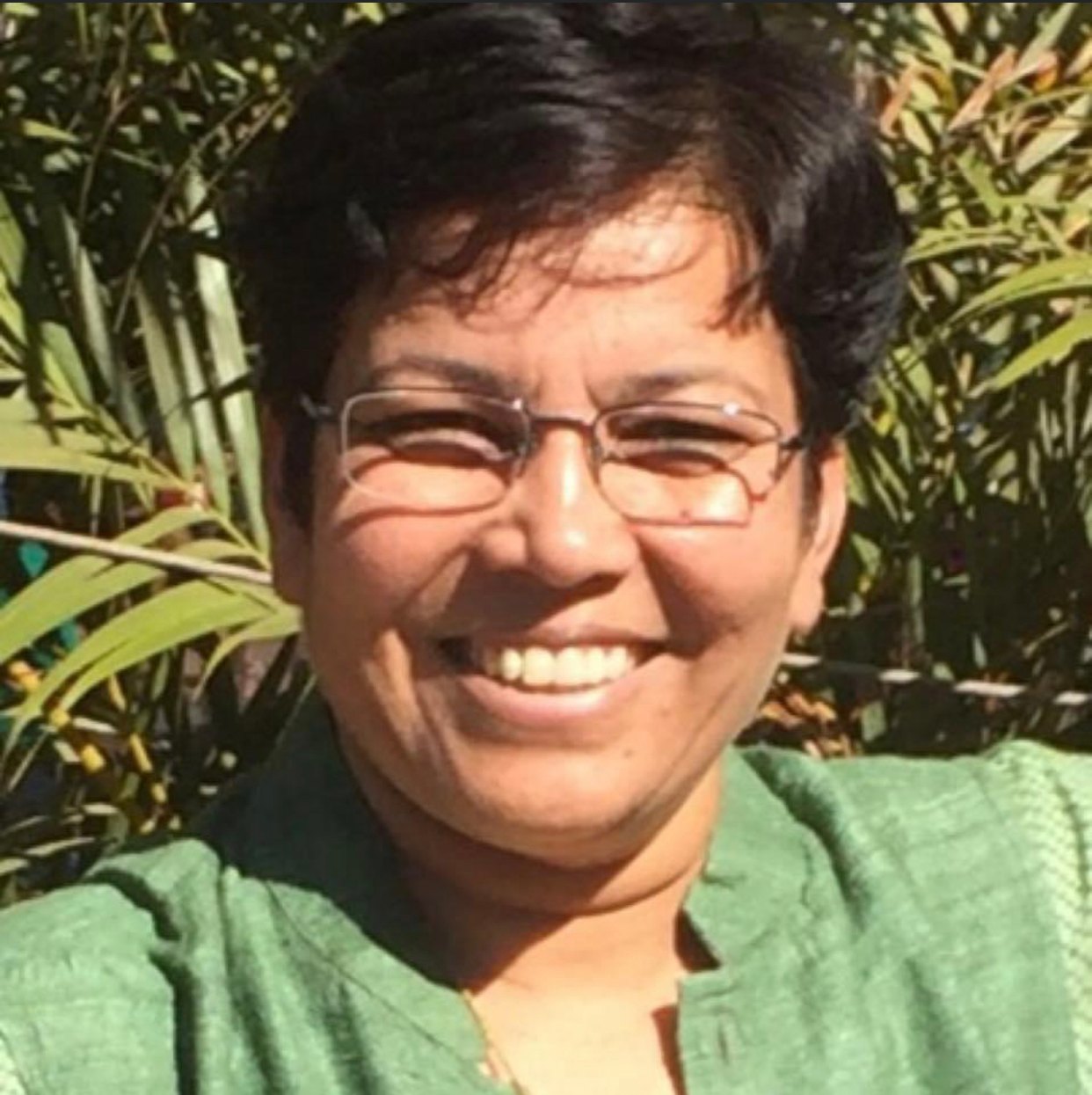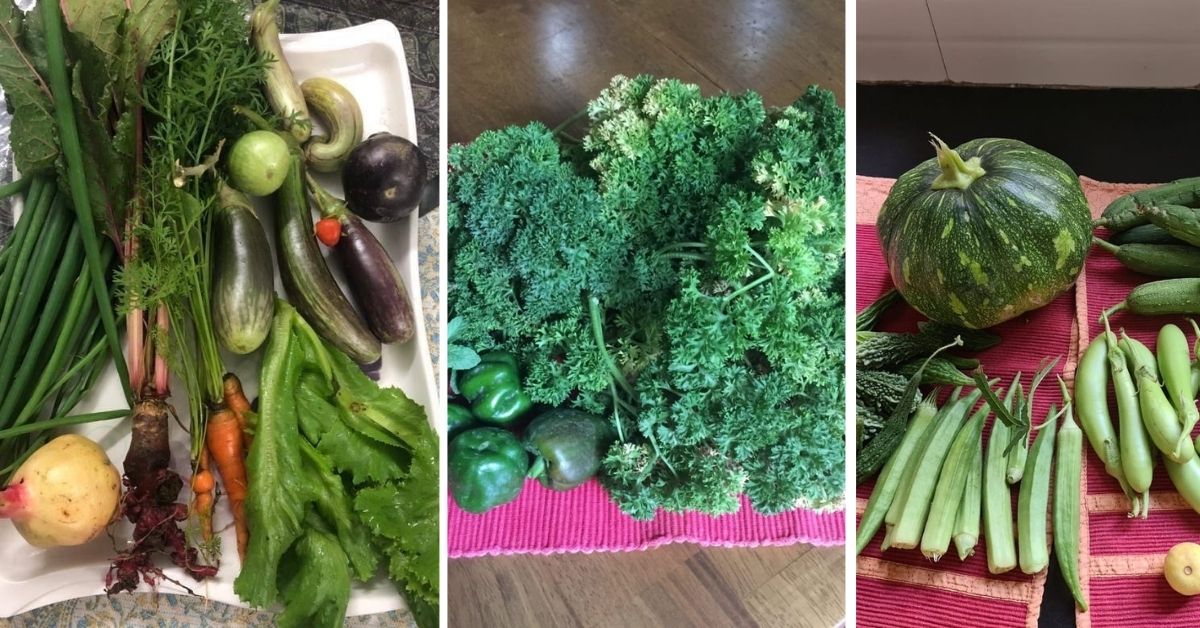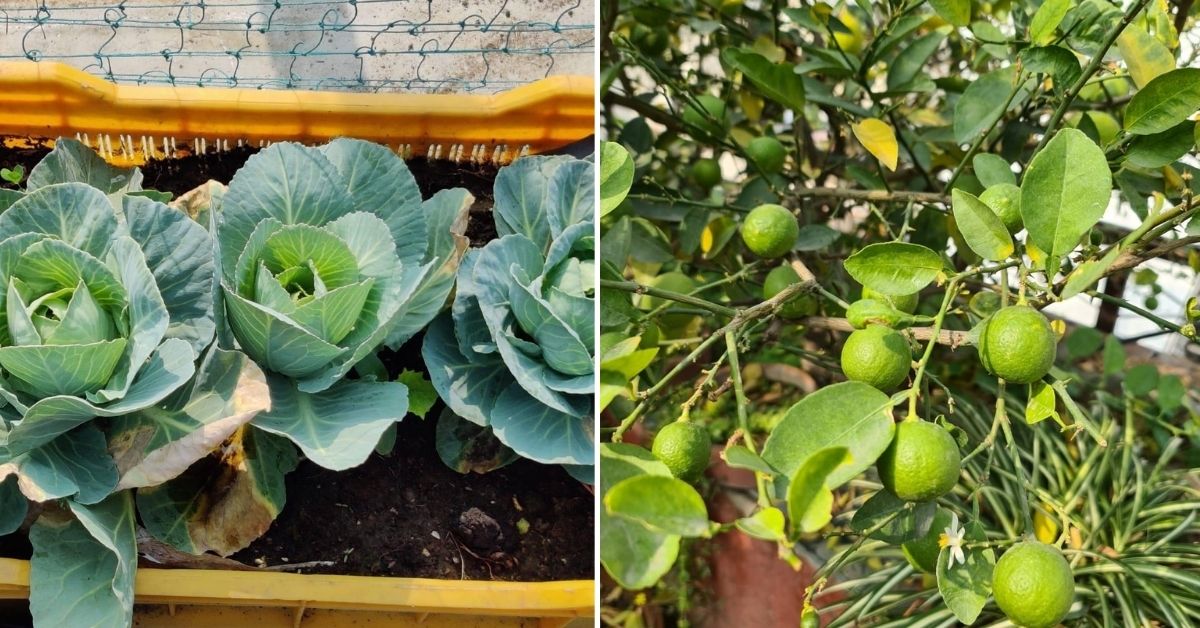Ex-ISRO Scientist Makes Her Own Soil From Stubble, Grows 70 Food Crops at Home
An urban gardener and entrepreneur, former ISRO scientist Poornima Savargaonkar grows 70 varieties of food at her Gurugram home by making her own soil from stubble.

Farming has often been considered a rural occupation, mostly practised in the countryside. However, that’s not the case for 54-year-old Poornima Savargaonkar, a resident of Gurgaon. She has always been an ardent nature lover, an urban gardener, and advocate of sustainable living.
“I was raised as one with nature,” she recalls, adding, “My parents lived in Ahmedabad, and were very fond of gardening. They would ensure that one meal every week was made entirely of produce grown in their garden. Even if we were living in a rented home, my father would grow a few varieties of flowers, while my mother would grow fruits or vegetables. When I was staying in a hostel during college, my study desk always had a small pot with a money plant growing in it.”
But only a few know that Poornima is also a former scientist. Till 2003, she worked at the Indian Space Research Organisation (ISRO) in Ahmedabad. After quitting the organisation that year to take care of her family, she took up urban farming, and eventually became an entrepreneur.

Today, she runs Enriched Soil and Soul, which sells seven varieties of soil made using stubble waste and other organic material. In addition, on a 300 sq ft terrace, she grows over 60 varieties of fruits, vegetables and herbs in pots. Her garden includes fruits such as strawberries, pomegranate, jamun and papaya, as well as vegetables such as radish, carrots, tomato, and capsicum. It also has herbs such as basil, oregano, and moringa, among many more.
During the lockdown, the urban gardener decided to inspire and help others with their terrace gardens by starting a YouTube channel. Not only does she conduct live sessions to explain various aspects of urban gardening, but also speaks in Hindi so she can reach out to more people.

A self-sustained effort
When Poornima began terrace gardening, she noticed there were too many options on the internet about what kind of soil to use and what plants to grow in that.
“There were also very few articles or videos that explained the soil variety that can be used in India’s climatic conditions. I did my research, and started preparing Amrut mitti, which is a mix of compost, dried leaves, cow dung and urine, to grow these plants. To date, I do not purchase any soil, and only prepare my own. The raw material is sourced from my society, home kitchen and farmers in a village,” she says.

To make the soil more fertile and reduce the burden on the environment, she decided to incorporate stubble waste produced in farms to make the Amrut mitti. For this, Poornima collaborates with a farmer family in a village named Behlpa, located on the outskirts of Gurgaon, to source the stubble waste, horticulture waste (dry leaves), and cow dung and urine.
“Right now, we have one processing unit and every three months, we use about 1,500 kilos of stubble waste to produce at least 12 tonnes of organic soil. Three types of stubble waste are used — wheat, bajra, and rice, and seven varieties of potting mix are produced. The varieties are for indoor and outdoor plants, bonsais, succulents and roses, as well as for planting seeds and growing water plants,” says Poornima, adding that it takes 45 days to process the soil, and that all the consumer has to do is continuously add compost to it.

Zero-waste living
After Poornima moved to Gurgaon in 2003, she noticed the lifestyle in the city was completely different from what she had been used to.
“I was introduced to a synthetic world, where everyone was highly dependent on plastic. Until that year, I had never even come across a garbage landfill. I realised the people around me, and myself, were part of the problem. I decided to change my lifestyle, and ensure that I would not produce waste that can harm the environment. I spoke to others, hoping to convince them to do the same,” she says.
She decided to put her quest for zero-waste living into action. “I grow my own food, and the waste that is generated goes back to growing food again. When I go out to shops, I don’t purchase plastic bags. I use items like bottles and buckets as planters. When the COVID-19 lockdown was announced, I decided to show others how they can do the same. So, I started a YouTube channel and uploaded videos of gardening tutorials, seed and soil preparation, and gave recycling tips,” Poornima says.
Today, her channel has more than 23,000 subscribers, and some of her videos have more than one lakh views.
Subhankar Bharadwaj, a beneficiary of Poornima’s videos, says she is a woman on a mission and a ‘Garbage-To-Greens’ warrior. “Every Saturday, Ms Poornima conducts live sessions where she provides training to urban maalis on how to grow organic fruits and vegetables on the terrace, and make compost at home. She has inspired me to wean off my corporate lifestyle and take up the role of an urban gardener,” he says.
Her goal is to see every household in India have a rooftop garden to grow their food in, no matter how small the quantity.
You can follow Poornima on her Facebook page, or her YouTube channel. To purchase the organic soil she makes, you can visit her website.
(Edited by Divya Sethu)
If you found our stories insightful, informative, or even just enjoyable, we invite you to consider making a voluntary payment to support the work we do at The Better India. Your contribution helps us continue producing quality content that educates, inspires, and drives positive change.
Choose one of the payment options below for your contribution-
By paying for the stories you value, you directly contribute to sustaining our efforts focused on making a difference in the world. Together, let’s ensure that impactful stories continue to be told and shared, enriching lives and communities alike.
Thank you for your support. Here are some frequently asked questions you might find helpful to know why you are contributing?


This story made me
-
97
-
121
-
89
-
167













